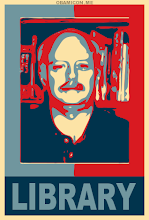There are two types of assessment; formative and summative. Formative assessments are given at regular intervals during a project to assess on-going knowledge and to improve growth and instruction.
Using formative assessment is of particular value as students learn how to do research. It is also of value to teacher librarians when they are designing and monitoring instruction. While you are teaching students how to do research, they must also gain content knowledge. Using formative assessment ensures that happens.
Formative assessments take many forms and can be quizzes, tests, writing assignments, projects, a show of hands, what have you, but the key component is the on-going monitoring. Content-based reflection, in some form, is key to greater understanding.
It is important as the teacher librarian collaborates with the teachers that assessment be part of the activity or project design. There needs to be agreement on what form the assessment will take in relationship to the curricular objectives.
Successful alternative assessments include four parts:
- Direct. They measure real projects.
- Ongoing. They are tied to continuing work.
- Instructional. The teacher is the primary assessor.
- Empowering to students. Because students need to actively participate, they take responsibility for their own learning.
- Finding. TL monitors students ability to find materials.
- Analyzing, Evaluating, and Using. These are all skills that can be taught using Big6 or another research method.
- Presenting. Students enjoy learning how to present information using PowerPoint, HyperStudio, or other technology. The assessment piece is the on-going work and the finished project.
Related Articles
Adamson, P. (et al). (2008, October 2). Formative Assessment for Literacy, Grades K-6: Building reading and academic language skills across the curriculum. School Library Journal 54, 75-75.
Morrison, T. (2007, May). Carving a New Assessment Trail. Knowledge Quest, 35(5), 48-49.

I agree that it is most wise to collaborate with the classroom teacher on assessments, especially the summative assessment, as this shows that the TL is part of the team and the lesson/unit that students just participated in was a joint venture.
ReplyDeleteIt is also true that the TL is the expert in info literacy skills and would be the the best one to lead these formative, ongoing, assessments, but also in collaboration with the CT, again, making it a collaborative time all the while advocating through our actions, and showing that what we do is indeed legitimate.